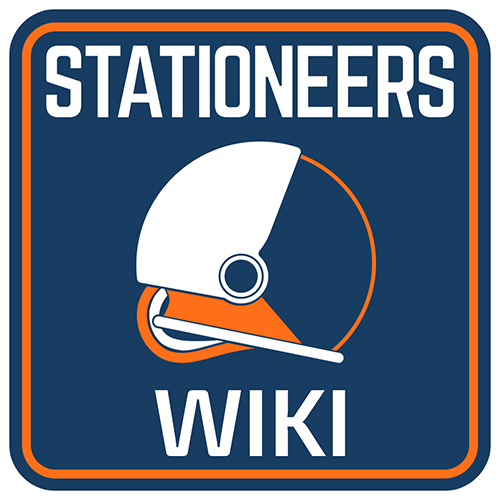Difference between revisions of "Parameters"
From Unofficial Stationeers Wiki
(_base for check) |
(Add code definitions) |
||
| Line 1: | Line 1: | ||
-- This module implements [[Template:Parameters]]. | -- This module implements [[Template:Parameters]]. | ||
-- [SublimeLinter luacheck-globals:mw] | -- [SublimeLinter luacheck-globals:mw] | ||
| + | |||
| + | local DEFINITIONS = { | ||
| + | native_name = {code = "<!-- name in local language. If more than one, " .. | ||
| + | "separate using {{Plain list}} and omit native_name_lang -->"}, | ||
| + | native_name_lang = {code = "<!-- language two- or three-letter ISO code -->"}, | ||
| + | start_date = {code = "<!-- {{Start date|YYYY|MM|DD}} -->"}, | ||
| + | end_date = {code = "<!-- {{End date|YYYY|MM|DD}} -->"},} | ||
local p = {} | local p = {} | ||
local removeDuplicates = require('Module:TableTools').removeDuplicates | local removeDuplicates = require('Module:TableTools').removeDuplicates | ||
| + | local yesno = require('Module:Yesno') | ||
local function makeInvokeFunction(funcName) | local function makeInvokeFunction(funcName) | ||
| Line 40: | Line 48: | ||
function p._code(args) | function p._code(args) | ||
| + | local definitions = yesno(args.definitions, true) | ||
local title = args._base or mw.title.getCurrentTitle().baseText | local title = args._base or mw.title.getCurrentTitle().baseText | ||
return string.format([[{{%s | return string.format([[{{%s | ||
%s}}]], title, strMap(extractParams(args.base), | %s}}]], title, strMap(extractParams(args.base), | ||
| − | function(s) return string.format('| %s = \n', s) end)) | + | function(s) |
| + | if definitions then | ||
| + | return string.format('| %s = %s\n', s, | ||
| + | DEFINITIONS[s] and DEFINITIONS[s].code or '') | ||
| + | else | ||
| + | return string.format('| %s = \n', s) | ||
| + | end | ||
| + | end)) | ||
end | end | ||
Revision as of 05:02, 31 July 2015
-- This module implements [[Template:Parameters]].
-- [SublimeLinter luacheck-globals:mw]
local DEFINITIONS = {
native_name = {code = "<!-- name in local language. If more than one, " ..
"separate using {{Plain list}} and omit native_name_lang -->"},
native_name_lang = {code = "<!-- language two- or three-letter ISO code -->"},
start_date = {code = "<!-- {{Start date|YYYY|MM|DD}} -->"},
end_date = {code = "<!-- {{End date|YYYY|MM|DD}} -->"},}
local p = {}
local removeDuplicates = require('Module:TableTools').removeDuplicates
local yesno = require('Module:Yesno')
local function makeInvokeFunction(funcName)
return function(frame)
local getArgs = require('Module:Arguments').getArgs
return p[funcName](getArgs(frame))
end
end
local function extractParams(source)
local parameters = {}
for parameter in string.gmatch(source, '{{{(.-)%f[}|<>]') do
table.insert(parameters, parameter)
end
return removeDuplicates(parameters)
end
local function strMap(iter, transform, sort)
local returnTable = {}
for _, v in pairs(iter) do
table.insert(returnTable, transform(v))
end
if sort then
table.sort(returnTable)
end
return table.concat(returnTable)
end
function p._check(args)
local title = args._base or mw.title.getCurrentTitle().fullText
return string.format(
'{{#invoke:Check for unknown parameters|check|unknown=' ..
'[[Category:Pages using %s with unknown parameters]]|%s}}', title,
table.concat(extractParams(args.base), '|'))
end
function p._code(args)
local definitions = yesno(args.definitions, true)
local title = args._base or mw.title.getCurrentTitle().baseText
return string.format([[{{%s
%s}}]], title, strMap(extractParams(args.base),
function(s)
if definitions then
return string.format('| %s = %s\n', s,
DEFINITIONS[s] and DEFINITIONS[s].code or '')
else
return string.format('| %s = \n', s)
end
end))
end
function p._compare(args)
local Set = require('Module:Set')
local function normaliseParams(parameters)
local paramsNorm = {}
-- Prepare a key lookup metatable, which will hold the original
-- parameter names for each normalised parameter, e.g.
-- [test] = {TEST, Test}. paramIndex functions like a Python
-- defaultdict, where the default is a table.
local paramIndex = setmetatable({}, {__index = function(t, k)
if not rawget(t, k) then
rawset(t, k, {})
end
return rawget(t, k)
end})
for _, parameter in pairs(parameters) do
table.insert(paramsNorm,
string.lower(string.gsub(parameter, '%A', '')))
table.insert(paramIndex[
string.lower(string.gsub(parameter, '%A', ''))], parameter)
end
paramsNorm = removeDuplicates(paramsNorm)
-- Overload key lookup in paramsNorm. While [[Module:Set]] will
-- operate on the table (which is to say, the normalised parameters
-- array), key access will be by way of the paramIndex metatable.
setmetatable(paramsNorm, {__index = paramIndex})
return paramsNorm
end
local baseParams = extractParams(args.base)
local otherParams = extractParams(args.other)
local baseNormParams = normaliseParams(Set.valueComplement(
otherParams, baseParams))
local otherNormParams = normaliseParams(otherParams)
return string.format([[Identical:
%s
Similar:
%s
Disparate:
%s]],
strMap(Set.valueIntersection(baseParams, otherParams),
function(v) return string.format('* %s\n', v) end, true),
strMap(Set.valueIntersection(baseNormParams, otherNormParams),
function(v) return string.format('* %s < %s [%s]\n',
table.concat(baseNormParams[v], '; '),
table.concat(otherNormParams[v], '; '),
v)
end, true),
strMap(Set.valueComplement(otherNormParams, baseNormParams),
function(v) return strMap(baseNormParams[v],
function(s) return string.format('* %s\n', s) end, true)
end, true))
end
function p._demo(args)
local title = args._base and ('|_template=' .. args._base) or ''
return string.format('{{Parameter names example%s|%s}}', title,
table.concat(extractParams(args.base), '|'))
end
function p._dlist(args)
return strMap(extractParams(args.base),
function(s) return string.format('; %s: \n', s) end)
end
function p._list(args)
return strMap(extractParams(args.base),
function(s) return string.format('* %s\n', s) end)
end
p.check = makeInvokeFunction('_check')
p.code = makeInvokeFunction('_code')
p.compare = makeInvokeFunction('_compare')
p.demo = makeInvokeFunction('_demo')
p.dlist = makeInvokeFunction('_dlist')
p.list = makeInvokeFunction('_list')
return p
